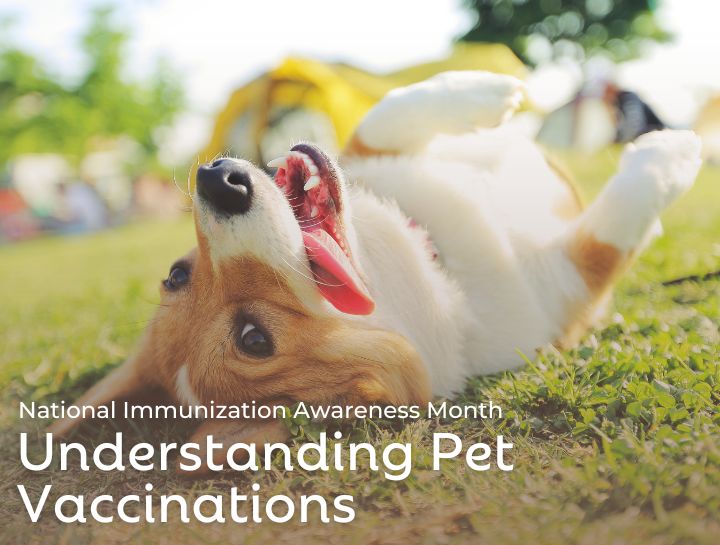Understanding Pet Vaccinations: National Immunization Awareness Month

August is recognized as National Immunization Awareness Month, a time dedicated to raising awareness about the importance of vaccinations. While vaccinations are commonly associated with human health, it is equally vital to prioritize the immunization needs of our furry companions. As a responsible pet owner, it is essential to understand the significance of vaccinations in safeguarding your pet's health and promoting overall well-being.
Why Vaccinations Matter
Vaccinations are a critical component of preventive healthcare for pets. They help to strengthen their immune system by introducing harmless versions of disease-causing agents, known as antigens, into their bodies. This exposure stimulates an immune response that prepares the body to defend against future infections. Vaccinations offer numerous benefits, including:
- Disease Prevention: Vaccines are like invisible shields, protecting our pets from life-threatening diseases. They reduce the risk of illnesses or worse, so pets can continue living life with a wagging tail.
- Longevity: Who doesn't want more quality time with their fur babies? Vaccinations can add years to their lives by preventing diseases that could cause long-term health issues.
- Cost-Effective: Preventing diseases through vaccinations is often more affordable than treating the illnesses those diseases cause. Regular vaccinations can save pet owners from hefty veterinary bills associated with prolonged treatments.
- Public Health: Some pet diseases can be transmitted to humans. By vaccinating our pets, we also contribute to public health by reducing the risk of zoonotic infections.
Vaccination Schedule
To maximize the effectiveness of vaccinations, it is essential to follow a recommended vaccination schedule. Consult with one of our veterinarians to develop a tailored vaccination plan based on your pet's age, lifestyle, and risk factors. Generally, puppies and kittens require a series of vaccinations starting at six to eight weeks of age, followed by booster shots at regular intervals until they reach adulthood. Adult pets typically receive booster shots annually or as recommended by our veterinarians.
Vaccine Safety
It is natural for pet owners to have concerns about the safety of vaccinations. Rest assured that vaccines have undergone rigorous testing and are considered safe for administration in healthy pets. Like any medical intervention, vaccines may have some side effects, but these are generally mild and temporary. Our veterinarians will be happy to address any questions or concerns you may have about the safety of vaccines for your pet.
As a responsible pet owner, protecting your companion's health should be a top priority, and vaccinations are an essential part of this commitment. National Immunization Awareness Month serves as a reminder of the crucial role vaccines play in preventing the spread of infectious diseases among pets. By staying up to date with your pet's vaccination schedule, you are not only ensuring their well-being but also actively contributing to the health of the pet community as a whole. Remember, consult with your veterinarian to develop a vaccination plan tailored to your pet's specific needs. Together, we can keep our furry friends happy, healthy, and safe from preventable diseases.
If you would like to schedule an appointment at Armitage Animal Clinic or if you have any questions about your pet’s vaccination schedule, call us today at (905) 836-4001 and we will be happy to help!
